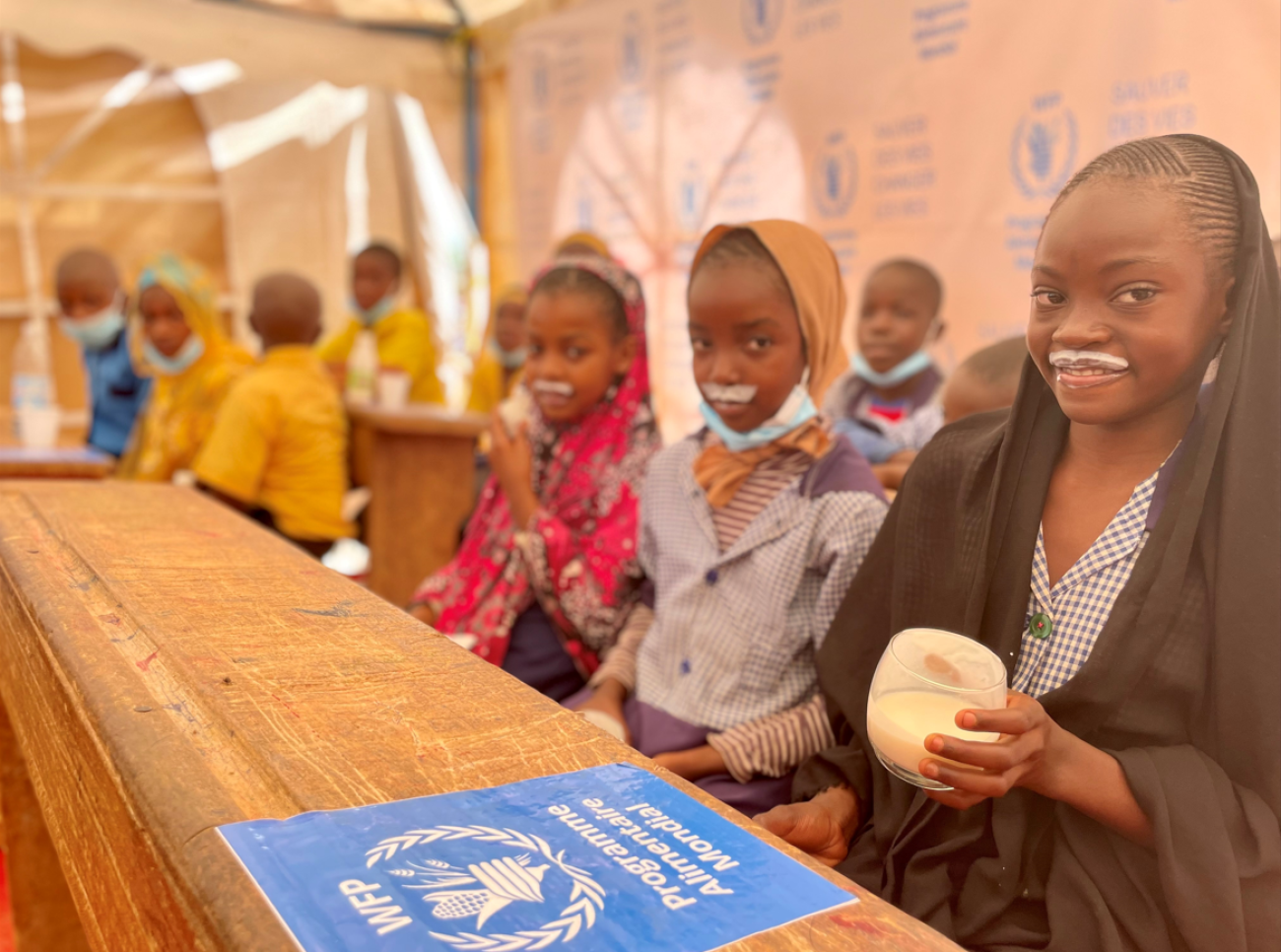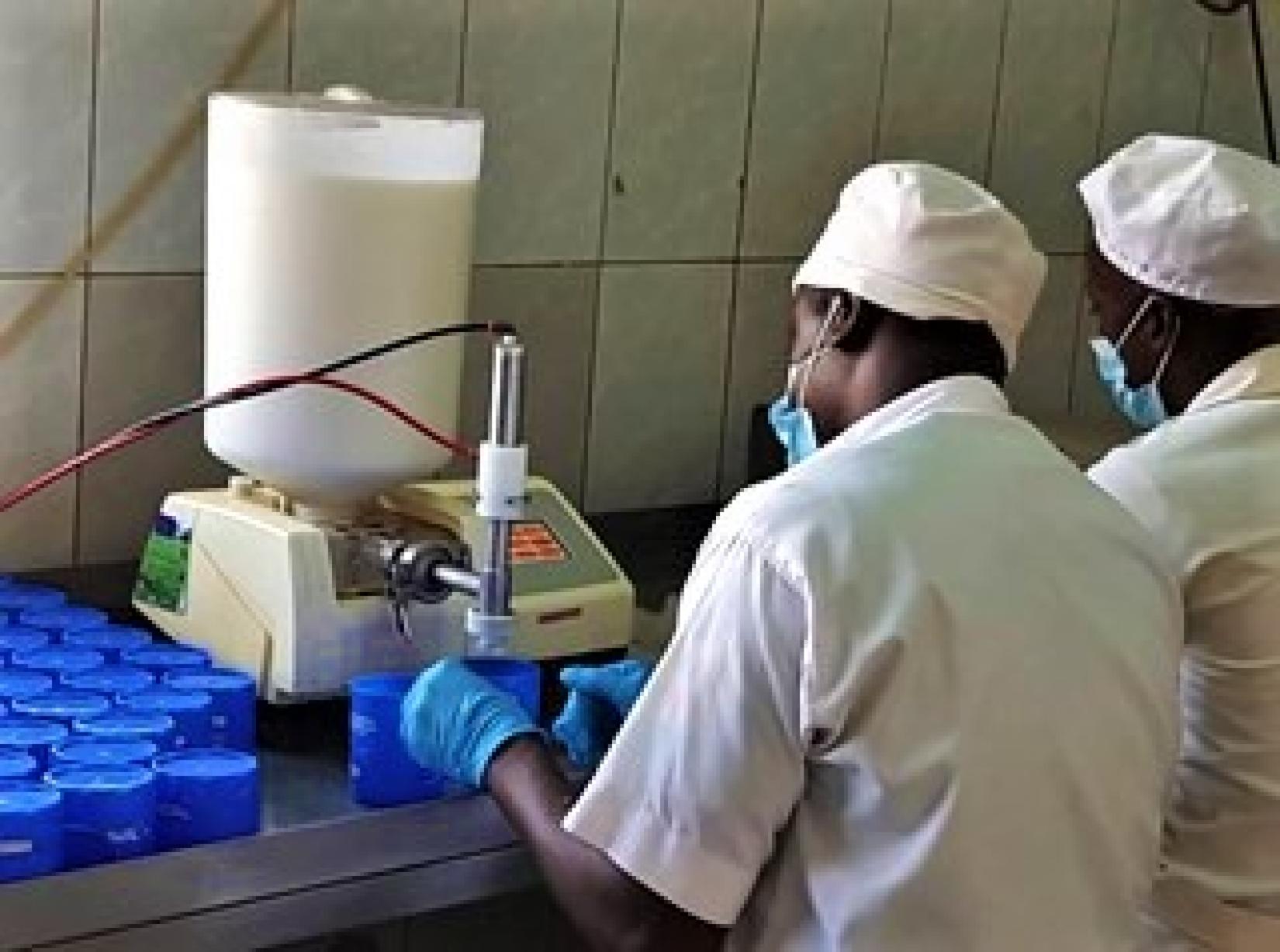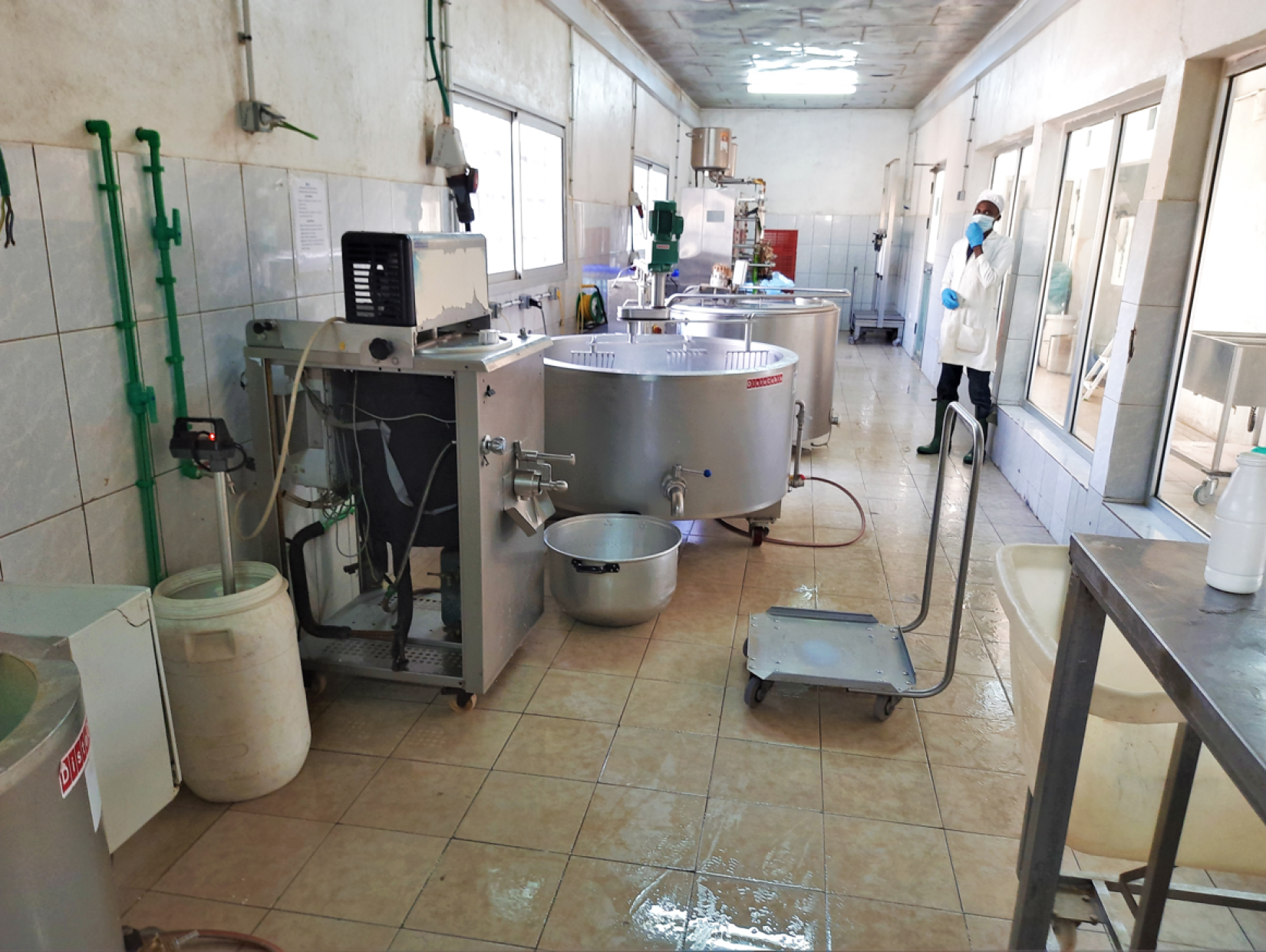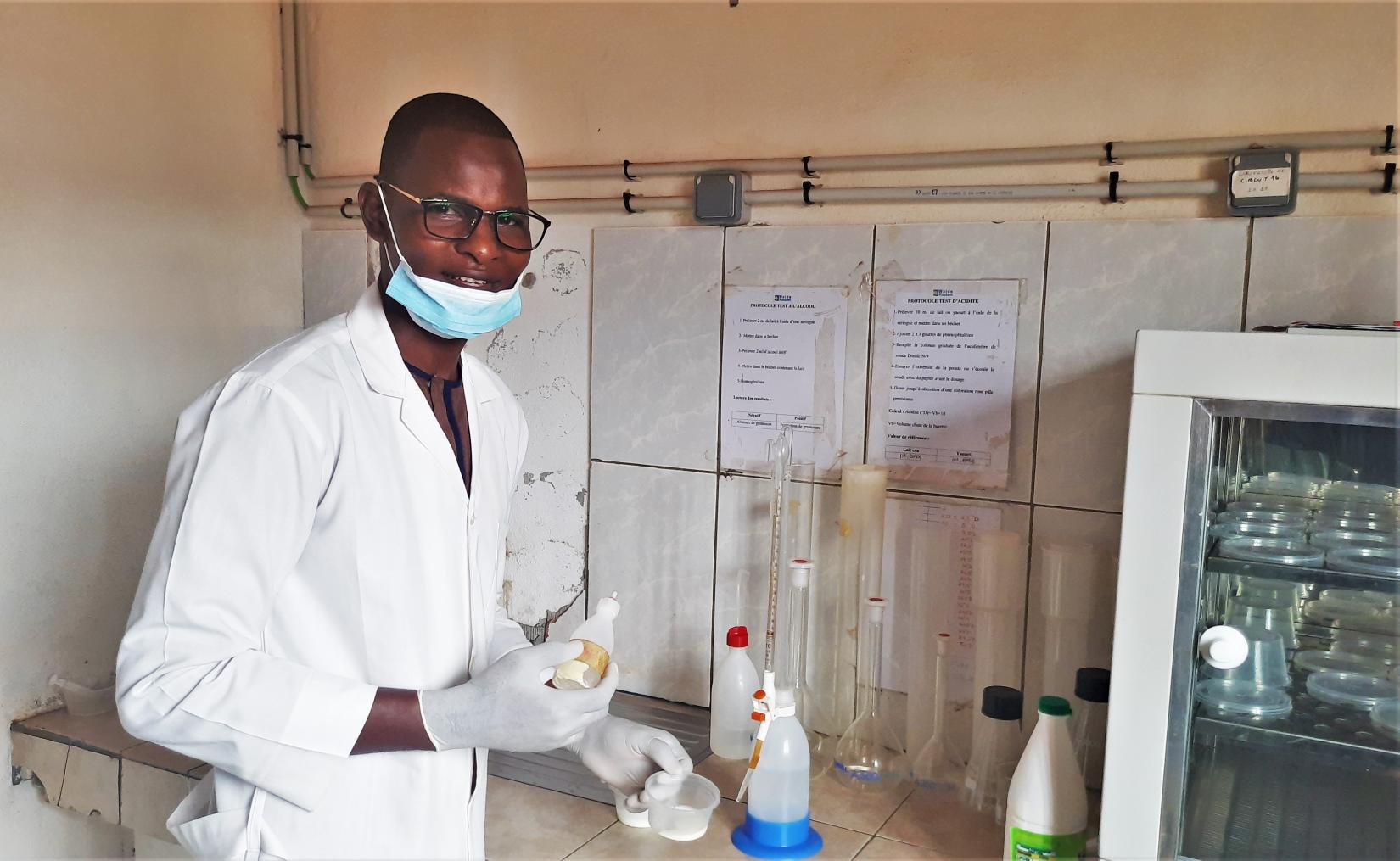From dairy farms to milk cups; WFP ensures safety of school meals

In the Adamawa region of Cameroon, where WFP supports access to basic education for children in vulnerable communities with locally sourced and procured foods
Milk has a limited shelf life. It must be handled and preserved in the highest laboratory standards to prevent contamination or spoilage. Milk is a highly nutritious food containing essential macronutrients and micronutrients that can boost children’s growth n and cognitive abilities.
Since February 2022, The World Food Programme in Cameroon has been supporting almost 1000 school children in the Adamawa region with locally processed milk (yogurt), cassava bread and eggs sourced from local producers in the region.
One of the newest additions to the Home Grown School Feeding Programme in the region is the Beka Matali School. WFP started providing yoghurts, bread and eggs here in December 2022. Already, school attendance and performance has significantly improved. The head teacher, Tchinda Bertille says, “The entire community, especially parents of schoolchildren appreciate the yogurt.” According to her, the taste is excellent, the quality is sure and “we have never received any negative complains about the product.”

The Adamawa region is known for its many cattle. It has one of the highest illiteracy rates in the country at almost 34%. School aged children would often tend to cattle in the fields and eventually join the family business. One of WFP’s main objectives when it launched the pilot of the Home Grown School Feeding Programme in 2022, providing bread and yogurt in schools, was to help improve enrolment and attendance in schools. According to the teacher of the Ngodi Malfagoua School, Issa Timothe, that objective is already being met. “Usually during Transhumance, classes would be empty because pupils are out tending cattle, but since WFP started providing school meals, we have a full class every.”
ENSURING THE QUALITY AND SAFETY OF THE YOGURT
Much of the milk supplied to Walde Kossam (A local dairy processing plant, transforming milk to yoghurt) is sourced from herders' cooperatives f located just a few kilometers from the chief Adamawa town of Ngaoundere. Farmers and cattle herders here, in villages like Idool, Tello and Tchabal have grouped into cooperatives. With support from WFP and Government ministries like the Ministry of Livestock, Fisheries and Animal Industries (MINEPIA), the cooperatives have organised to improve production capacity and quality to attract a competitive price.

Beyond the price advantage, these cooperatives value WFP safety and quality control advice because of the benefits for the end consumer – their children. School children are the ultimate beneficiaries of the Home Grown School Feeding Programme.
Mamoudou Biya is a cattle herder affiliated the farmer cooperative in Idool. He is proud of his milk and happy that his own children enjoy the yogurt processed from the milk he sells. “This WFP project that supports our children with yogurt in school, has also helped us to be more organised in observing certain hygienic protocols that ensure the safety and durability of our milk,” he says. “We have learned how to ensure good quality milk, increased our production to meet the demand and of course increase the profitability of our business,” he added. In his opinion, more parents are also motivated to send their children to school now, instead of making them keep cattle in the fields.
Keeping cattle to ensure high quality milk is also a skill that the farmers are learning. Given the limited shelf life of milk and the delicate safety and handling measures that must be observed to prevent spoilage, WFP closely monitors quality the milk collection processes of farmers through these cooperatives. A food safety and quality control expert conducts a quality assessment in collaboration with the regional delegation of MINEPIA before transporting the milk to the Walde Kossam processing plant in Ngaoundere.

WFP also completed a supply chain assessment from collection points in the cattle farms through Walde Kossam’s transformation unit to the distribution sites in the selected schools. Following recommendations, Walde Kossam improved on conducting tests for microbiological analysis and increased the frequency. They equally upgraded from analysing milk every 2 months to conducting weekly analyses and collaborated with national laboratories to conduct in-depth laboratory tests.
“We test for density, freezing point, alcohol, acidity and flammability of the milk processed. If any of these tests fail, the milk is rejected,” says the head of quality control for Walde Kossam, Aminou Mamoudou.
After reception of milk at transforming unit, pasteurised samples are then collected by the Unit’s Quality Officer and sent to National Veterinary Laboratory (LANAVET) under the clearance of Ngaoundere University.
The milk is then processed into yoghurt and distributed in the five schools where WFP currently implements the Home Grown School Feeding Programme in the Adamawa region.
A WIN-WIN PARTNERSHIP BASED ON COLLABORATION FOR COMMON INTERESTS
“The partnership with WFP has really made us put a lot of focus on the quality of our yogurt; particularly on the micro-biological tests and analysis of the milk,” says Mamoudou. “WFP is a major client whose interests are equally beneficial for our children, therefore we take every precaution to ensure that the standards for quality and control that they demand are met,” Mamoudou added.
According to WFP’s food safety and quality officer, Elvis Njabe, “the technical support given to WALDE KOSSAM prevents food-borne diseases that are usually associated with transforming a high-risk product like fresh milk. It also ensures that the school children receive safe, fresh and nutritious milk.”
In providing life-saving food assistance, WFP assures the quality and safety of the products and food distributed. Quality control is integral not just to the Home Grown School Feeding project but in all other aspects of food management, like rice fortification, food storage and distribution. In every step of its supply chain, WFP effectively operates its saving lives mandate by assuring quality control.












